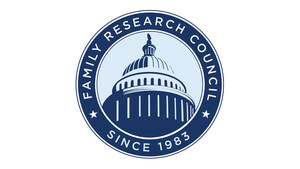
WASHINGTON, Sept. 9 /PRNewswire-USNewswire/ -- Available research compiled by the Family Research Council demonstrates that religious practice in the home has a significant positive effect on a child's level of academic achievement.
(Logo: http://photos.prnewswire.com/prnh/20080930/FRCLOGO)
(Logo: http://www.newscom.com/cgi-bin/prnh/20080930/FRCLOGO)
According to Religious Practice and Educational Attainment, a synthesis paper produced by Family Research Council Senior Fellow and Director of the Marriage & Religion Research Institute (MARRI) Dr. Pat Fagan, "Education is widely recognized as the way to maintain the well-being of those born into the middle class. It is also a powerful tool to raise individuals out of poverty. If religious practice were to have a significantly positive role in education, then the practice of religion would have profound implications for world economies and societies." The paper details both the direct and the indirect effects of religion in the home on educational accomplishment.
Religious practice directly affects a student's ability to perform. Students involved in religious activities have higher GPAs by 14.4 percent than those not involved, and spend more time on their homework. Additionally, religion is one of few readily accessible institutions for lower-income families, making its effect on children's academic success particularly significant. Religious activity remains important in higher education, where over 75 percent of students who become more religious during their college years perform above average.
Student success is also affected indirectly by religion, through the various "pathways" that Fagan details in this paper. The pathways include both internal, personal dynamics and external, communal networks.
On a personal level, religious practice assists in internalizing norms that encourage academic attainment, in developing work habits and high personal expectations of achievement, and in reducing behavioral risks.
The paper also details the external pathways through which religious practice at home enhances scholastic performance, one being that internalized norms that encourage achievement are taught and reinforced through family interaction. The company of religious peers encourages academic focus while discouraging risky behavior. Churches and religious schools offer community and solidarity, supplementing sometimes-sparse student resources and offering mentorship. Planned religious extracurricular activities have the added benefit of eliminating unstructured "hanging out," which, in abundance, is correlated with poor academic performance.
To download a copy of Religious Practice and Educational Attainment, visit www.marrifrc.org.
SOURCE Family Research Council







Share this article